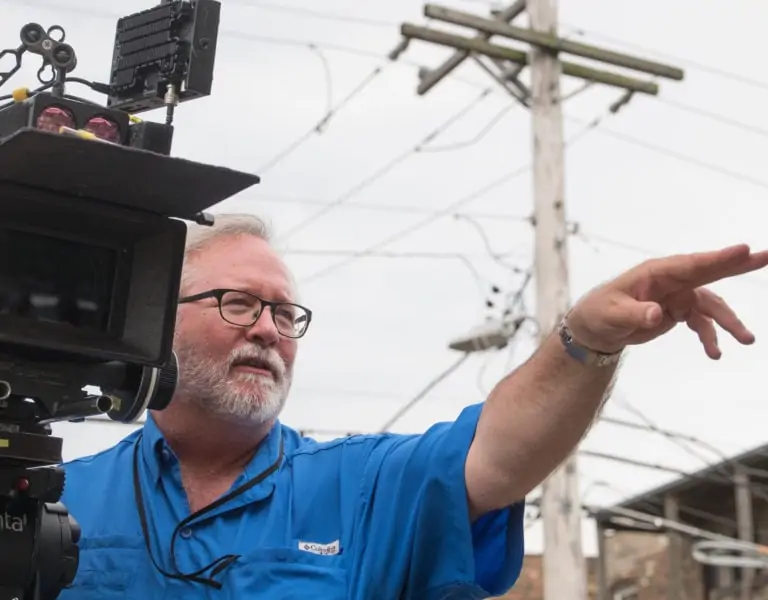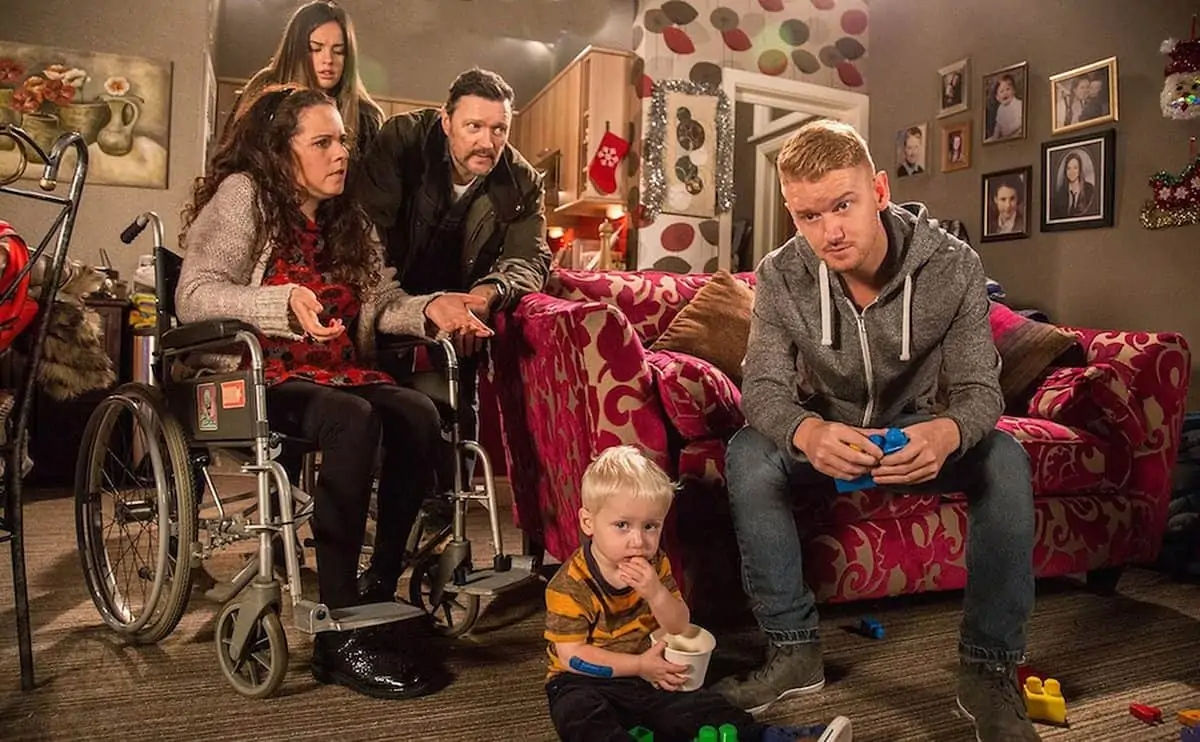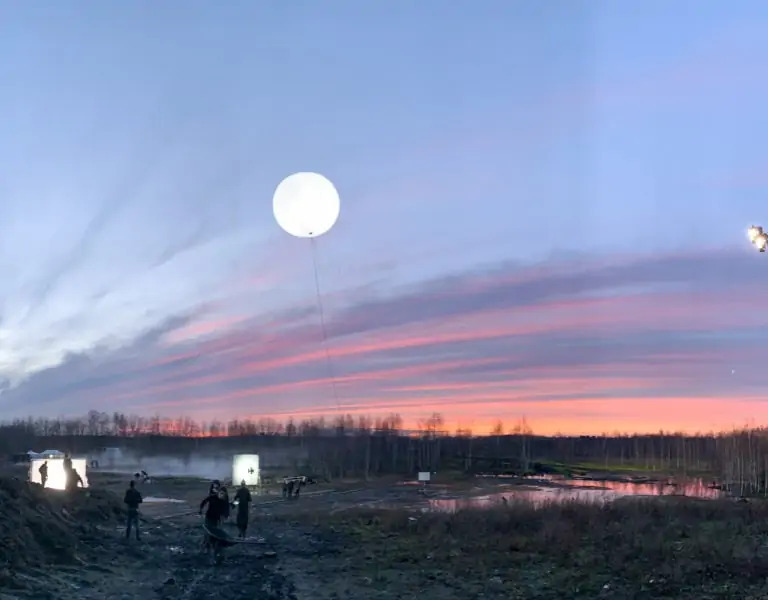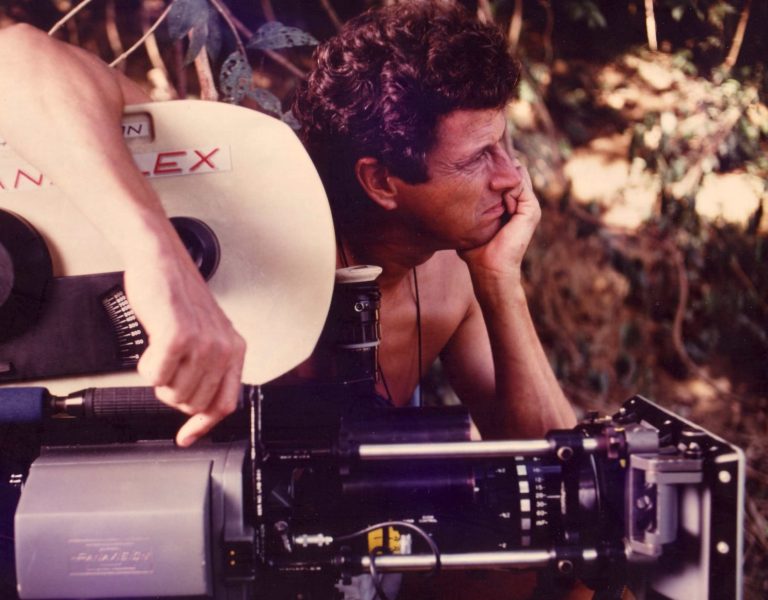CALL TO CLIMATE ACTION
David Raedeker BSC makes a convincing case for giving more eco-conscious filmmaking practices the green light.
‘All is quiet on the western front’ when we think about the film industry’s response to the climate crisis. Fantastic cinematography nevertheless!
Although we are all aware what’s looming, it’s mostly business as usual for several years in a row by now. Particularly in the film industry it seems we are oblivious to acknowledge the damage we are causing, at all levels of the business. However, it would be beyond the scope of this article to articulate why the film industry, its institutions and its individuals should have a stake in this!
We lost 70% of our biodiversity, we are already experiencing global warming with changing climate patterns, and we are creeping into a catastrophic world of 2-4 degrees global heating by the end of the century. The scientific community is unanimous about it: We are not on track and the window to avert all this is rapidly closing.
However, on a global scale the devastating war in Ukraine has had the side effect of pushing renewable energy at unprecedented speed. HSBC is considering pulling out of investment into fossil fuels, and the elections in Brazil, at least for the time being, have delayed the Amazon rainforest from tipping over the edge.
In our industry at least a handful of productions have some measures in place: sustainability officers, recycling bins, more use of batteries instead of generators, biodiesel, LED lighting, paperless call sheets, meat-free Mondays, “carbon offsetting”, carbon reduction plans by the streamers, sustainability integrated storytelling, some long-term plans for carbon neutrality, BAFTA’s Albert, and more.
Sadly, under closer inspection, these initiatives, when implemented, don’t come near the necessary reductions to be in line with 1.5 to 2 degrees climate warming. We can only hope that some of the streamers’ future carbon forecast will materialise, although there is no guarantee for this.
A starting point to turn this around would be a bigger slice of a production’s budget. To give you a comparison: COVID costs were estimated at about 10% of overall film budgets during the pandemic, whereas sustainability constitutes at the most a tenth of this, if money is actually spent. However, the impact of the climate crisis already dwarfs COVID damages in costs and human suffering and it is only a question of time as to when this deficit will eventually catch up with us.
Producers are still not able to sufficiently incorporate sustainability into their budgets, streamers are not yet creating a low carbon infrastructure and tax release connected to sustainable film practices don’t yet exist meaningfully. The everyday pressures of productions don’t allow for even a moment to stop. We leave all this to others and look away, which means that nothing really happens and opportunities are postponed into the future. Unfortunately, legislation is not in place either. Key organisations in our sphere need to adopt a top-down approach, creating awareness and policy that set in motion a fundamental change in attitudes.
As DPs, like most others we fall in line with the trend. We constantly miss the opportunity of our position as heads of department to influence the conversation. On that rare occasion, where we do bring these questions up, we stand alone, are seldom supported, and often capitulate. Because of our demanding work schedules, we ignore the ticking time bomb called the climate crisis.
Where do we draw the line?
Here is what industry bodies and the BSC amongst other such as Bectu, ACO, IMAGO and GBCT could do:
– Engage with the science.
– Educate and support members actively in their effort for sustainable productions.
– Develop a Green Rider for its members (https://wearealbert.org/green-rider/).
– Have at least one of its yearly events meat-free.
What we could do as DPs:
Transport (amounts to more than 50% of a typical production’s carbon emissions)
– Use electrified transport.
– Take the train instead of flying domestic.
– Fly economy when flying abroad (ca. 50% less carbon emissions than business flights).
Working practice
– Use local crew when we can.
– Avoid generators and use batteries or mains, whenever possible. When generators are necessary, investigate green hydrogen (already available for bigger productions), hybrid, biodiesel.
– Use low energy lighting such as LED over more energy intensive sources and keep your overall lighting footprint low.
– Support integration of a low carbon lifestyle in our visual storytelling (the electric car in the background of the shot, “planet placement”).
Food
– Reduce meat consumption (regardless of ethical beliefs, meat is responsible for 14% of global greenhouse emissions).
– Ask for food waste recycling.
Lifestyle
– Learn about the climate crisis (i.e. use BAFTA’s Albert resources) and lead by example.
– Use a carbon tracker to get to terms with our personal emissions (i.e. WWF footprint calculator). On projects ask for carbon accounting in prep and after finish (i.e. Albert’s carbon tracker).
It’s a once-in-a-lifetime opportunity to be part of something bigger and better, to bring our film industry up to date and keep it relevant, make it an improved and happier workplace for everyone, and protect our craft, which we hold so dear. I hope our industry changemakers will play a more active role in this.












